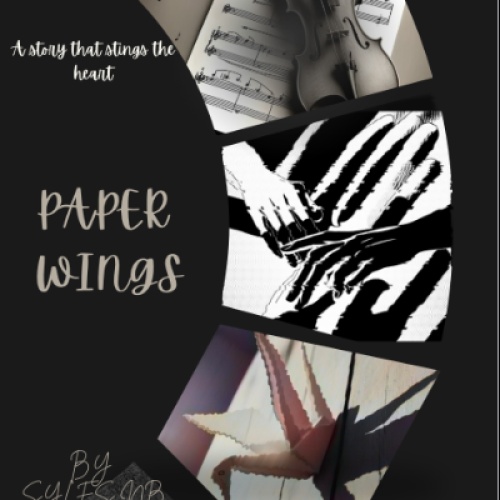The first time I saw Max Carrington, he was leaning against the hospital's elevator, looking as though he was contemplating whether or not he could survive another moment in this place. His arms were crossed over his chest in a way that screamed I'm too cool for this - which, in the world of hospital gowns and IV drips, is essentially a cry for help.
Max wasn't really supposed to be there. The hospital was for kids like me - the ones with diseases that had names so long they could barely fit on a prescription bottle, the ones whose bodies couldn't quite keep up with the world. I was a violinist who had learned, at the age of 16, that my heart had quietly decided it was too tired to function properly. My doctor called it restrictive cardiomyopathy, which sounds both horrifying and like something a medieval knight would contract. Like an infection you'd get from a cursed sword.
But Max wasn't the type of person you could categorize by the usual hospital rules. For one, he wasn't my age. For another, he wasn't really doing the whole "I have a disease" thing. He had the sort of presence that made you feel like you were in the middle of an existential crisis just by standing too close to him. He had that look - the kind of person you could imagine writing tortured poetry while staring out a rainy window.
I noticed him the moment I walked into the ward, and I knew exactly what he was thinking: Here comes another sick person with a violin case. Great. It's true, I was carrying a violin case - because no matter how broken my heart was, I couldn't stop carrying around the thing that made my heart beat in the first place. Music is the one thing I can control, and by the time I got into this place, I'd learned that control was everything.
But Max - he wasn't looking at my violin. He was staring at the wall like it held the answers to everything. I wasn't sure if he was ignoring me on purpose or if he was just... well, being Max.
I took a deep breath, which was a complicated act because breathing has become a luxury, like that last bite of chocolate cake at the end of a weeklong diet. "Hi," I said.
Max looked up then, as if noticing I'd spoken. He raised an eyebrow, which was more than most people managed to do in the hospital. Most people were too busy trying not to die.
"Violin?" he asked, sounding genuinely curious, though there was a touch of something else in his voice - something a little less interested and a little more dismissive, as if the idea of me playing an instrument in a hospital was somehow beneath him.
"Yes," I said, holding it out like an offering. "It's the only thing I've ever been any good at."
He nodded slowly, then glanced at my heart monitor, a machine that beeped on the opposite side of the room. I could tell he was mentally counting the seconds until it made the whooshing noise that meant I was still alive.
"You know," he said, after a beat, "if you're really good, you could perform at one of the hospital fundraisers. You'd be a hit."
I wanted to laugh at the absurdity. "You really think people want to hear me play while I'm stuck in this place? Pretty sure my heart's not exactly in top form."
Max gave me a look, his mouth twitching. "They'd love it. It's like those sad commercials with the puppies. Everyone loves a good cause."
I rolled my eyes. "You're a real optimist."
Max just shrugged. "I'm a realist."
We both stood there for a while, not saying anything, and I felt it - a weird sense of understanding, as though Max and I were both fully aware of the limits of what we had left. But at the same time, there was something else in his eyes. Something alive.
And then, in an attempt to break the silence, I did the most clich�d thing possible: I played a single note on my violin. It wasn't a real song - just a stray note, high and sustained, hovering like a question in the air.
Max listened. He didn't move or look away. He just stayed there, as though the note had pulled him into a place where things were simple, before sickness and the weight of being human got in the way.
When I stopped playing, Max gave me an approving nod. "Not bad."
I stared at him. "What's your excuse for being here?"
Max smiled, but it wasn't a smile that reached his eyes. "It's complicated."
And that, right there, was the beginning of everything.




